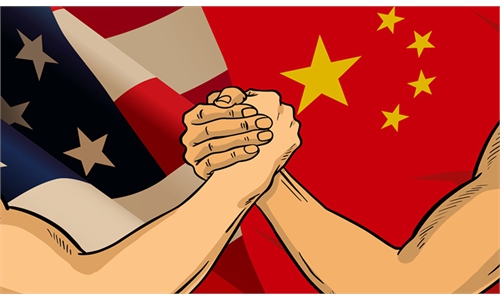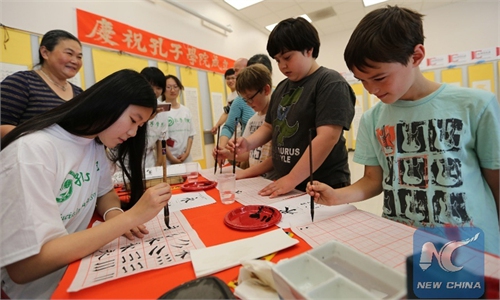This is the age of disconnection. What Covid-19 has done is to show up all the flaws of global connectivity.
The virus travels with human beings and forces us to have periodic lockdowns that disconnects the transmission, buying time to bring it under control. Commenting on the pandemic, US Foreign Affairs magazine laments not only the US failure to prepare, but also the failure to contain: “what is killing us is not connection, it is connection without cooperation.” Touché!
Globalisation was the great connector, created by the unipolar order which saw free trade as beneficial not just to the world, but mostly to itself. But the shift to a multi-polar order made America insecure and everyone else unsure.
A wounded Alpha is always dangerous, emotionally hurt and lashing out on perceived rivals. China as number two falls into that category.
In four separate speeches, Secretary of State Pompeo, Attorney General Barr, National Security Adviser O’Brien and FBI Director Wray laid out their case for containing China. But do the US Gang of Four’s analyses of containment of China make global sense?
Beating the drums of war, decoupling trade and splintering the Internet into a “Clean Net” may sound great for domestic politics, but no one in their right mind can support a nuclear arms race in the midst of a growing global pandemic and possibly the worst economic depression since the 1930s.
The global free trade bargain is very simple - free trade is win-win for all trading partners, but each country must deal with the unequal distribution of trade benefits within its own borders - all about domestic politics.
Disconnecting global trade and free flow of information only increases costs for all, reducing the resources to deal with domestic inequalities.Worse, any arms race is lose-lose for all, diverting scarce resources from fighting pandemics, climate warming and domestic injustices.
History is the best guide to understanding how we got into the mess today.
The story on US politics and economics is well told, but the China story is often undertold. Because of China’s rapid growth from poverty to world number two in 40 years, most historians are still at a loss to explain what this implies for the world as a whole. NUS East Asia Institute Professor Wang Gungwu in his marvelous new book: “China Reconnects (2019)” has given us a clear and easily readable sweep of China’s history and her search to reconnect with the outside world.
Professor Wang has condensed global history into three key centres of power: Mediterranean, India and China.
In 1500, China and India accounted for 48.6% of world population and 49.2% of world GDP (OECD). The Mediterranean powers (broadly including all Western Europe and West Asia) amounted to 17.1% and 22% of population and GDP respectively.
But it was naval power, science and technology that enabled the Western swerve to global dominance, so by 1950, China and India together accounted for 16.3% of world GDP, but 35.9% of the population. Western Europe and USA plus Western offshoots accounted for 19.1% of global population, but 56.8% of world GDP.
This neglect of maritime power caused India to be colonized by the 18th century, and China nearly gobbled up by the 19th century.
China’s engagement with the world was mostly through the Silk Road, with Indian Buddhism being the major foreign cultural influence on China. The Silk Road flourished during the Tang Dynasty (618-907 AD), but the Mongol empire in the 13th-14th century connected China not only to Europe, but also to Mughal India.
However, the arrival of Western traders through South-East Asia after 1500 accelerated China’s trade with the West (including cross-Pacific trade with Latin America through Manila). Only in the 20th century did China begin to appreciate that the key instruments of Western power came from maritime power and ability to enforce international law.
In Chapter 2 of “Behind the Dream, ” Professor Wang skillfully weaves the story of post-dynastic China, when Chinese intellectuals struggled to understand modernity. It was the Japanese invasion that sparked Chinese nationalism, culminating in the civil war that enabled the Communists to unite the country with the founding of the People’s Republic in 1949.
The story of Chairman Mao, Deng Xiaoping and the policy choices of President Xi Jinping is told with verve and deep insight, without the usual Western baggage of seeing personalities in black and white.
China’s admiration for the West is defined in Chinese names for the leading powers – heroic England, beautiful America, legal France and virtuous Germany. Hence, the reforms in the last 40 years were all about reconnecting to the West through trade, investment, technology and people. But as China became deeply entangled in globalisation as the world’s largest manufacturer and trading partner, there grew an internal awareness that continued development would have to rely on internal stability and order, as well as external security. Stability was premised on a strong Party, and as Professor Wang put it, “the country’s integrity rests on the capacity to defend its borders even from the world’s sole superpower.”
Professor Wang goes deep into Chinese philosophy and political history to find China’s roots into the new world order.
The book’s real contribution is in explaining China’s shift from the Old World to the New Global. Here, China’s interaction with the South, especially with the Association of Southeast Asian (Asean) countries, will play crucially in the next phase of development of the New Global.
Asean comprises 600 million people and over US$2.5 trillion in GDP, with great cultural diversity, natural resources and a strategic zone that holds the key to global trade between the West, South Asia, China and Northeast Asia. The South China Sea cannot afford to be balkanized because it was Great Power struggles that made the Balkans an unstable region for Europe and the Near East for over a century.
As the US tries to disconnect, China Reconnects is a tour-de-force for us to understand current developments from the lens of philosophy and history. Professor Wang writes with eye-popping clarity, dosed with empathy, to guide us through the fog of uncertainty. Unfortunately, reconnection takes two to play. Whether the next US President will attempt to connect or disconnect will be the question of the century.
Andrew Sheng is a Distinguished Fellow of Fung Global Institute, a global think tank based in Hong Kong.The views expressed here are the writer’s own.
Source link
Related news:
Launching new cold war harder than diffusing one: Global Times editorial
China's ability to diffuse any new cold war is more than the US' ability to launch one.Confucius Institute label shows US a petty superpower: Global Times editorial
The US is the most petty-minded of all big powers. Many Western countries have Confucius Institutes, but only the US, the world's sole superpower, feels threatened. Where is the US' confidence? Where is its cultural tolerance?Related posts:
'We lied, we cheated, we stole', ‘the Glory of American experiment’ by US Secretary of State/Ex-CIA director Mike Pompeo
Washington robs TikTok by treading upon rules TikTok for Business: What is TikTok Anyway? ByteDance investors value TikTo..
China will make its Covid-19 vaccine a global public good when it is ready for application after successful research and clinical trials,
China has just announced the completion
and launch of its BeiDou-3 Navigation Satellite System. But, how can we
use it? CGTN recently ...
Other:
The essence of China’s restraint is self-confidence, not timidity
Why is Pompeo so obsessed with China?



















